Search
Remove Ads
Advertisement
Summary 
Loading AI-generated summary based on World History Encyclopedia articles ...
Search Results
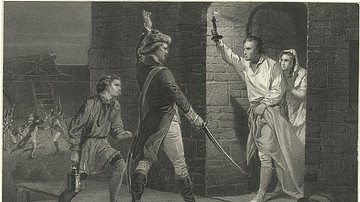
Article
Capture of Fort Ticonderoga
The Capture of Fort Ticonderoga (10 May 1775) was a military operation that occurred early in the American Revolutionary War (1775-1783). A small colonial expedition jointly led by Benedict Arnold and Ethan Allen surprised the British garrison...

Image
Ethan Allen Demands the Surrender of Fort Ticonderoga
Ethan Allen demands the surrender of Fort Ticonderoga 'in the name of the Great Jehovah and the Continental Congress' on 10 May 1775. Print, c. 1869. New York Public Library, Emmet Collection of Manuscripts Etc. Relating to American History...
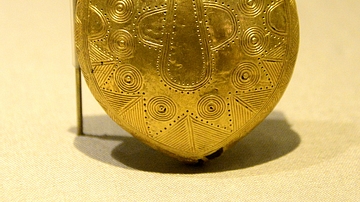
Image
Gold Foil-covered Lead Bulla from Bog of Allen
This Gold foil-covered lead bulla or amulet was found in Bog of Allen, Ireland. Circa 800-700 BCE. (National Museum of Ireland-Archaeology, Dublin, Republic of Ireland)
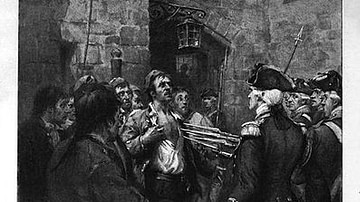
Image
Capture of Ethan Allen
Ethan Allen is captured by British troops on 25 September 1775 after attempting to capture Montreal, during the American Invasion of Quebec. Illustration by H. C. Merrill, after F. C. Yohn, originally published in November 1902 in Century...
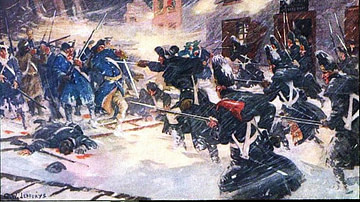
Article
American Invasion of Quebec
The American invasion of Quebec (September 1775-June 1776) was a military campaign undertaken during the American Revolutionary War (1775-1783). Hoping to induce the Province of Quebec to join the rebellion, the Second Continental Congress...

Article
Why the Industrial Revolution Started in Britain
The Industrial Revolution saw a wave of technological and social changes in many countries of the world in the 18th and 19th centuries, but it began in Britain for a number of specific reasons. Britain had cheap energy with its abundant supply...

Definition
William the Conqueror
William the Conqueror (c. 1027-1087), also known as William, Duke of Normandy, led the Norman Conquest of England in 1066 when he defeated and killed his rival Harold Godwinson at the Battle of Hastings. Crowned King William I of England...
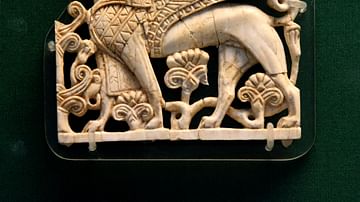
Article
The Nimrud Ivories: Their Discovery & History
In 1845 CE, the archaeologist Austen Henry Layard began excavations at the ruins of the city of Nimrud in the region which is northern Iraq in the present day. Layard's expedition was part of a larger movement at the time to uncover ancient...
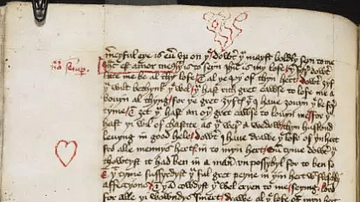
Definition
Margery Kempe
Margery Kempe (l. c. 1373 - c. 1438 CE) was a medieval mystic and author of the first autobiography in English, The Book of Margery Kempe, which relates her spiritual journey from wife and mother in Bishop's Lynn, England to a chaste Christian...
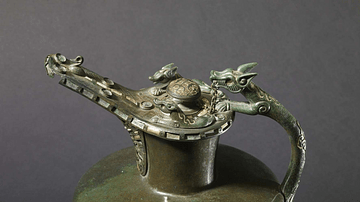
Article
Celtic Feasts
Feasts were an important part of ancient Celtic culture which marked important dates in the calendar and community successes. They were, too, an opportunity to display social status and, of course, eat and drink aplenty. Drunkenness and brawling...